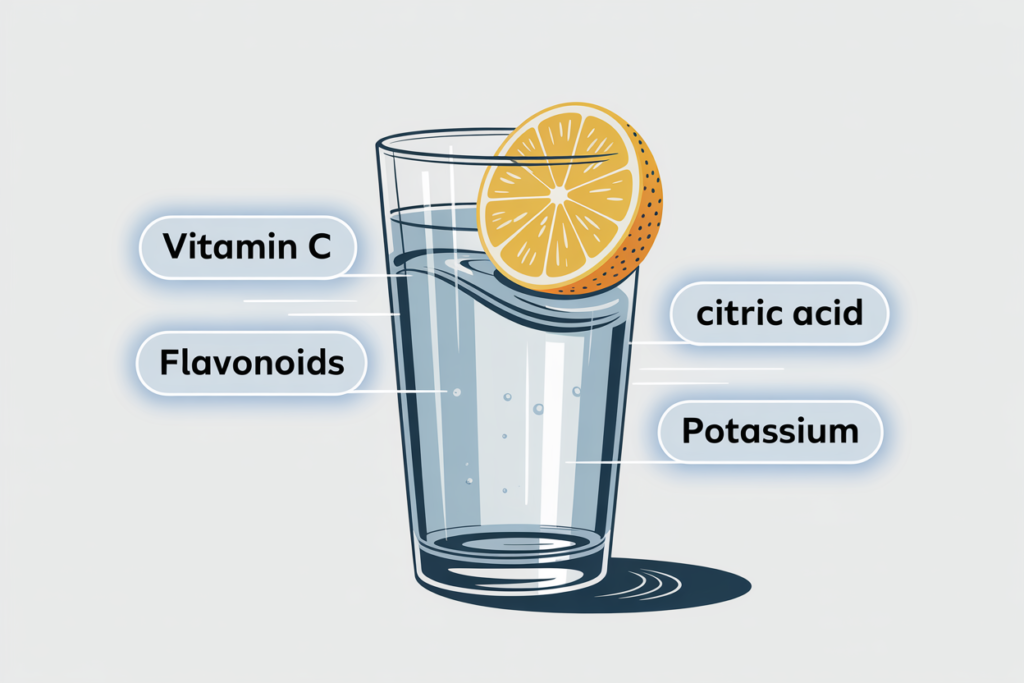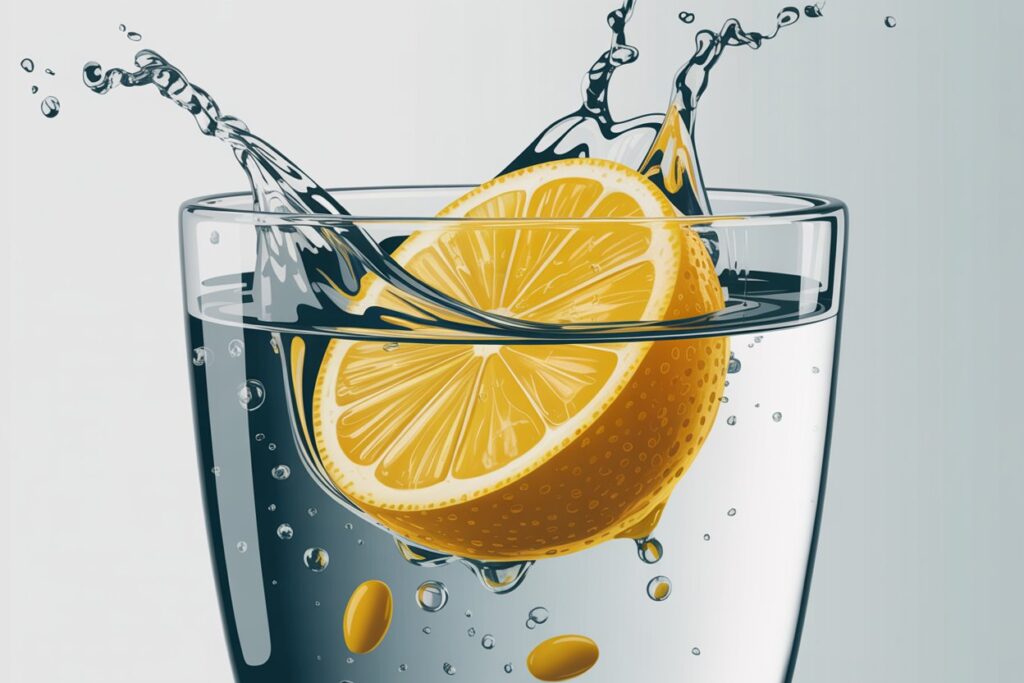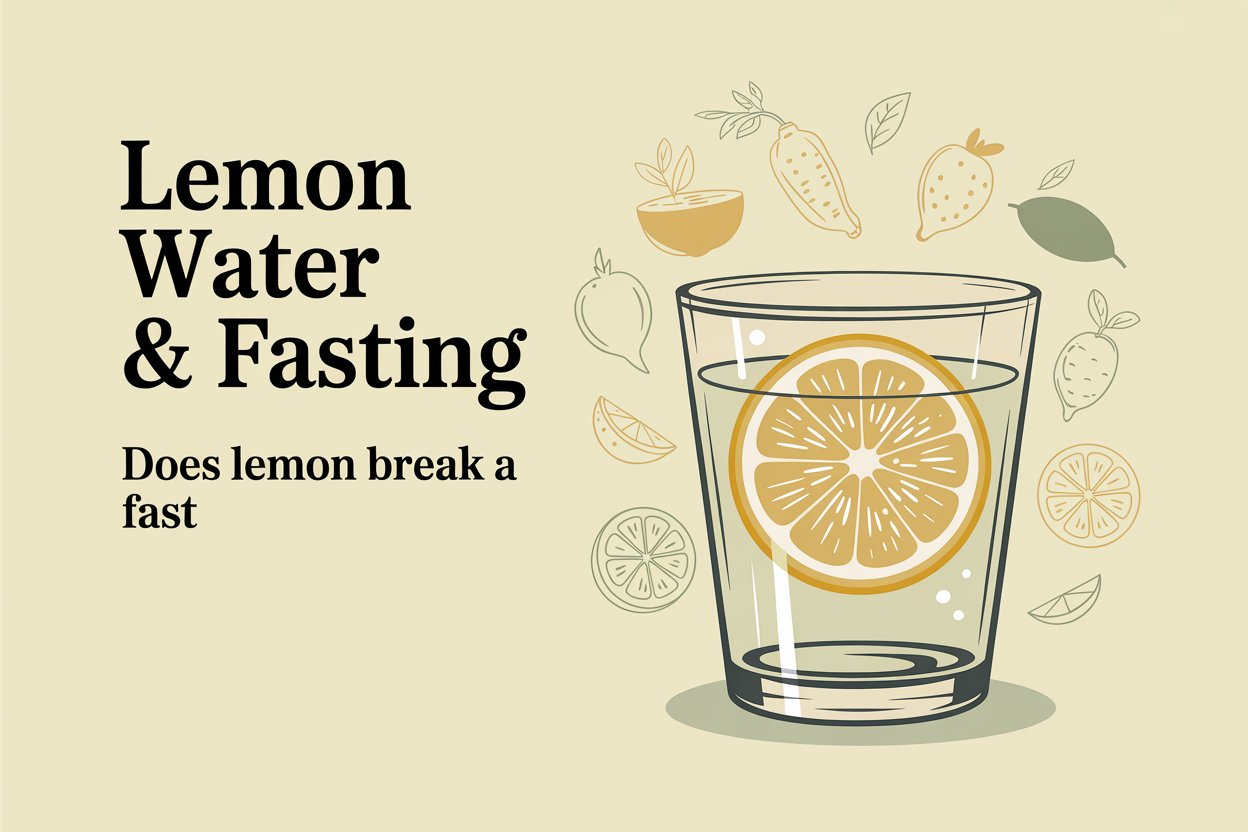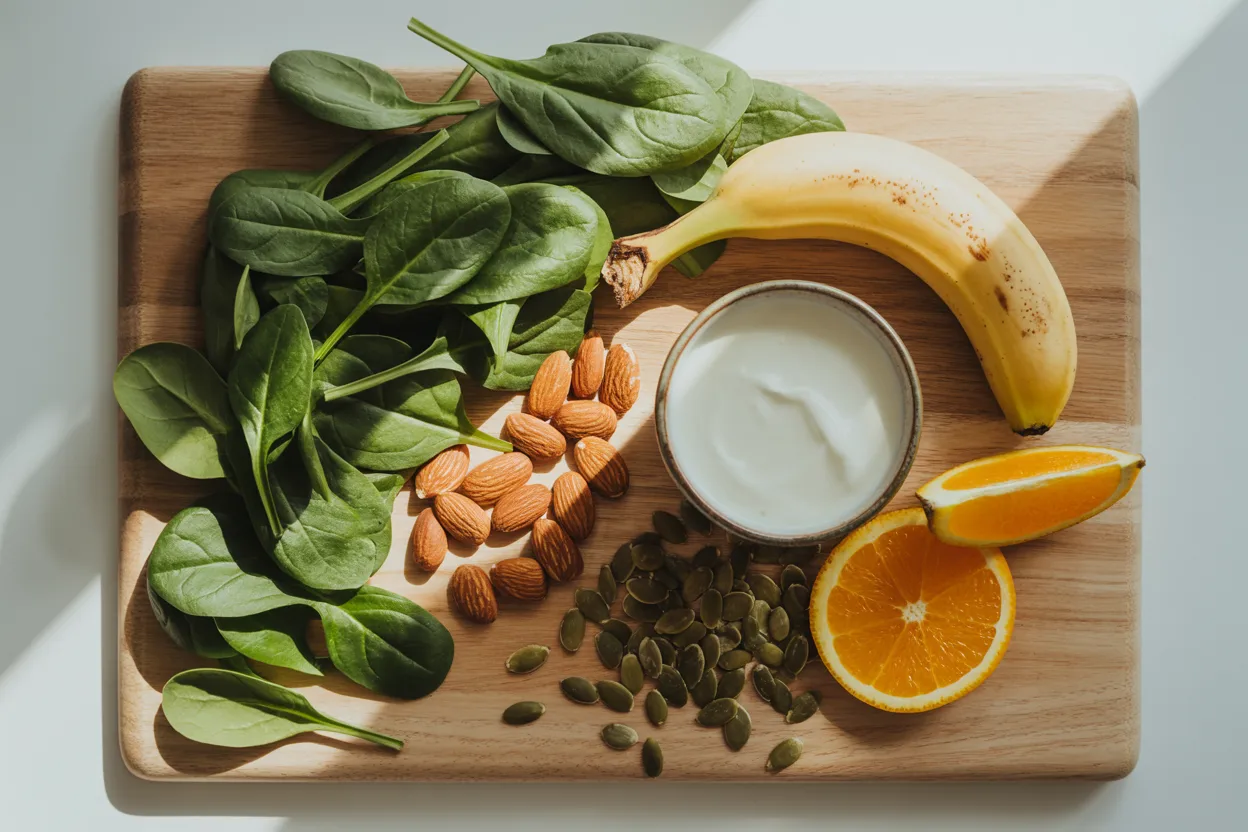You roll out of bed, squeeze half a lemon into warm water, and sip slowly. The flavor is bright, the warmth grounding, almost like a reset button. It feels clean, hydrating, and almost ritualistic. But does that splash of lemon juice break your fast?
The answer isn’t as simple as calorie math. Lemon water carries a cultural weight: detox traditions, morning cleanses, Ayurveda, the “master cleanse” craze. It’s more than just hydration. To figure out how it fits into intermittent fasting, we need to look beyond tradition and dig into physiology.
Beyond the Calorie Count
Calories are the obvious place to start. A wedge of lemon adds about three to six calories. A tablespoon of lemon juice comes in at two to four. Negligible, right? In terms of raw energy, yes. But fasting is about signals—insulin pulses, hunger hormones, cellular pathways—that tell your body whether it’s in a fed or fasted state.
The real question isn’t whether a splash of lemon adds energy. It’s whether the compounds in lemon—vitamin C, flavonoids, citric acid, and even the sour taste itself—shift the benefits you’re fasting for.
What’s Actually in Lemon Water?

Lemon juice is mostly water with a trace of nutrients. Still, what’s in that trace matters:
- Calories: two to four per tablespoon.
- Sugars: tiny amounts of glucose and fructose.
- Compounds: vitamin C, flavonoids, citric acid.
- Minerals: potassium and small electrolytes, though not in large quantities.
Taste adds another dimension. Sweet flavors often trigger a cephalic phase insulin response: an anticipatory burst of hormones before nutrients even arrive. Sour flavors like lemon are less studied in this context. They may stimulate digestive secretions differently, priming your gut for food without providing much energy.
Insulin and Blood Sugar Responses
Small amounts of lemon juice won’t spike blood sugar. That’s the easy part. But how lemon interacts with insulin sensitivity is more nuanced.
Citrus flavonoids like hesperidin and naringenin have been studied for their metabolic effects in non-human subjects. Some trials suggest they can improve insulin sensitivity and blunt post-meal glucose rises. Instead of pushing you out of a fasted state, the compounds in lemon might actually reinforce some of the metabolic benefits you’re aiming for.
Still, fasting physiology isn’t just about blood sugar. It’s also about signaling. Even without measurable glucose spikes, taste-driven cephalic responses can release small insulin pulses. Evidence for this is stronger with sweet taste than sour, but it raises the question: Does lemon water nudge your body toward “fed” mode? It’s hard to tell as there have been no human studies that confirm it, but it’ll be interesting to see what research tells us.
Gut, Satiety, and Appetite Signals
Lemon water can affect digestion in ways that you may notice. A sour taste stimulates the production of saliva and gastric secretions. In practice, that can make your stomach “wake up” a little faster. Some people report that lemon water curbs cravings. Others say it makes them hungrier. Both experiences have biological plausibility.
Polyphenols from citrus fruits interact with gut microbes and satiety hormones. According to early studies, they may alter GLP-1 and other signals associated with appetite and fullness. That helps explain why lemon water can have different effects depending on your microbiome and metabolism. It’s not a universal effect.
Autophagy and Cellular Pathways
A big reason people fast is to trigger autophagy, the cellular cleanup process. Autophagy is sensitive to nutrients, especially amino acids, glucose, and insulin surges. But trace citric acid and vitamin C? No solid evidence shows they shut it down.
And this is why many practitioners see lemon water as neutral for autophagy goals. Purists still avoid anything but water, since even tiny signals could theoretically matter. But if your primary goal is supporting cellular repair, a splash of lemon is unlikely to derail the process.
Hydration, Electrolytes, and Performance

Sometimes the simplest factor is the most powerful. Hydration itself makes fasting easier. Mild dehydration can mimic hunger, sap energy, and tempt you to break your fast early. Adding lemon can encourage you to drink more water, which is a win.
Lemons also have small amounts of potassium and antioxidants. Some studies suggest citrus polyphenols support vascular health and reduce oxidative stress. Vitamin C in lemon is another player, tied to improved oxidative balance and metabolic outcomes.
And while many wellness circles call lemon water “alkalizing,” that’s more perception than chemistry. Lemon is acidic, and while it doesn’t meaningfully change your blood pH, the ritual can still improve how your fast feels.
Making Lemon Water Work with Fasting
If you’re fasting for weight control or habit building, lemon water is unlikely to matter. The calories are trivial, and it might even help you stay consistent.
If you’re fasting for insulin sensitivity or autophagy, plain water remains the gold standard. Lemon probably won’t ruin your results, but avoiding all taste stimuli is the cleaner option.
Quantity also matters. A wedge or two squeezed into water ≠ a full glass of juice. A couple drops keep you hydrated with minimal risk of shifting your body out of fasting mode.
And the best approach? Treat it as an experiment. Run two weeks with lemon water, two weeks without. Track your hunger, cravings, energy, and focus. See how your body responds.
Does Lemon Water Break a Fast?
The short answer: not in any meaningful way for most people. The calories are too low to matter, and the compounds in lemon might even support insulin sensitivity and gut health.
But fasting isn’t one-size-fits-all. If you want the strictest possible fast—zero calories, zero taste cues—stick with plain water. If your goals are weight management, hydration, and making fasting sustainable, lemon water is a safe addition.
Make Fasting Personal with Municorn
The cleanest answer will always come from your own data. Use the Fasting App by Municorn to log lemon water use, cravings, energy, and focus. Try a two-week A/B test: one week with lemon water, one without. Compare hunger, performance, and progress. You’ll find the perfect rhythm for your health goals in no time!




